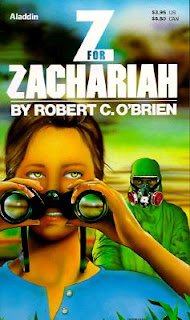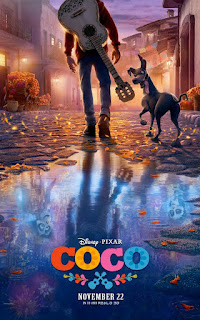Monday Musings: We are All Orcs
When it comes to the various races of Tolkien's Middle-earth stories, most people usually have a favorite -- the one they'd most like to be. For many, it's the Elves -- beautiful, wise, and pretty darn close to immortal. Others may prefer the Dwarves, who are rowdy but skilled craftsmen. Or the Ainur -- angelic spirits who include the Istari (wizards like Gandalf), the Valar (archangels, guardians of the world), and the fallen spirits like Melkor, Sauron, and the Balrogs.
There is one race that no one I've met has ever wanted to be part of -- the orcs. While orcs and similar races are often given a more nuanced role in some post-Tolkien fantasy, in the myth-maker's world orcs are corrupt by their very nature. They are servants of the dark, bound to the wills of fallen angels like Melkor and Sauron, but also given to their own bouts of greed and lust.
But the thing is that -- although this is true of the orcs in most of the stories -- Tolkien doesn't start out with Elves and Men as inherently good races and the orcs as inherently bad. As Saruman so eloquently puts it in the film version of The Fellowship of the Ring: "They were Elves once, taken by the dark powers, tortured and mutilated -- a ruined and terrible form of life."
When I read Tolkien for the first time, I wanted to be an Elf or a wizard. They were powerful and mysterious and very cool. I am, however, more of a Hobbit at heart (much like Professor Tolkien). I'm not nearly as disappointed by this discovery as I might once have been. Though Hobbits possess no great power, wisdom, or strength (unless it be strength of character), they are the linchpins of victory, the heroes of The Lord of the Rings. It is no bad thing to be a Hobbit. That said, as I was contemplating my own flaws and failures recently, I realized that the description of the orcs's origins matches our own in some ways. As fallen humans, we were corrupted by our own sin natures and the machinations of the enemy. Once shining bearers of the imago dei, we now walk about capable of quite horrible things. There is darkness in our hearts we cannot expunge. Born in darkness because of our ancestors, we remain the enemies of the Flame Imperishable.
But there is hope.
Unlike the orcs (whose end Tolkien never really explores), we are given a promise of redemption and resurrection. Christ promises His followers more than just eternal life -- it's an endless life in a glorified body, free from sin and death. That promise is like saying to an orc in Frodo's time, "You can return to the sort of person your earliest ancestor was -- free and wise."
So yes, we are all orcs. But by extension, we are also all Elves. And one day, God willing, we will be something even better.
There is one race that no one I've met has ever wanted to be part of -- the orcs. While orcs and similar races are often given a more nuanced role in some post-Tolkien fantasy, in the myth-maker's world orcs are corrupt by their very nature. They are servants of the dark, bound to the wills of fallen angels like Melkor and Sauron, but also given to their own bouts of greed and lust.
But the thing is that -- although this is true of the orcs in most of the stories -- Tolkien doesn't start out with Elves and Men as inherently good races and the orcs as inherently bad. As Saruman so eloquently puts it in the film version of The Fellowship of the Ring: "They were Elves once, taken by the dark powers, tortured and mutilated -- a ruined and terrible form of life."
When I read Tolkien for the first time, I wanted to be an Elf or a wizard. They were powerful and mysterious and very cool. I am, however, more of a Hobbit at heart (much like Professor Tolkien). I'm not nearly as disappointed by this discovery as I might once have been. Though Hobbits possess no great power, wisdom, or strength (unless it be strength of character), they are the linchpins of victory, the heroes of The Lord of the Rings. It is no bad thing to be a Hobbit. That said, as I was contemplating my own flaws and failures recently, I realized that the description of the orcs's origins matches our own in some ways. As fallen humans, we were corrupted by our own sin natures and the machinations of the enemy. Once shining bearers of the imago dei, we now walk about capable of quite horrible things. There is darkness in our hearts we cannot expunge. Born in darkness because of our ancestors, we remain the enemies of the Flame Imperishable.
But there is hope.
Unlike the orcs (whose end Tolkien never really explores), we are given a promise of redemption and resurrection. Christ promises His followers more than just eternal life -- it's an endless life in a glorified body, free from sin and death. That promise is like saying to an orc in Frodo's time, "You can return to the sort of person your earliest ancestor was -- free and wise."
So yes, we are all orcs. But by extension, we are also all Elves. And one day, God willing, we will be something even better.



I read that Tolkien wished later on that he hadn't made the Orcs so (what we today would call) chaotic evil. It doesn't jive with his Catholic faith well. But he never figured out what to do with them.
ReplyDeleteI hadn't heard that, but it does make sense. He had a good deal of trouble with the orcs overall from what I've read. I think if he'd been able to incorporate and revise his eschatological plans for Middle-earth he might have been able to do something more with the orcs in the end.
Delete